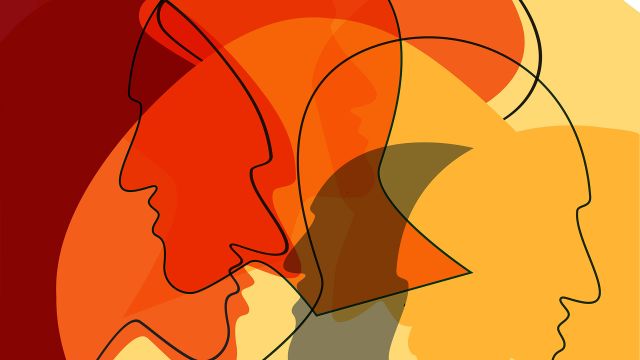Schizophrenia—a mental illness that typically distorts a person’s perception of reality—affects less than one percent of the US population. Although symptoms and treatment methods are well-understood, the actual causes of the disorder are still unclear.
“Because psychiatric diseases—including schizophrenia—involve some of the most complex functioning of the brain, much about them remains a mystery,” says Richard Smith, DO, a practicing psychiatrist at Tampa Community Hospital in Tampa, Florida. That said, researchers believe that a combination of genes, environmental factors, brain chemistry and the use of substances may increase your risk. Onset of schizophrenia most often occurs in young adulthood for males and females: for males, typically in their early 20s; for females, typically in their 20s to early 30s. Onset after 40 is uncommon.
Genes:
There is not one specific gene that determines whether or not you will develop schizophrenia. Instead, it’s believed that a combination of several genes may interact with environmental factors to predispose one toward the disorder. Studies done on twins have helped shed light on the genetic aspects of risk.
According to an August 2017 study in Biological Psychiatry, up to 79 percent of schizophrenia risk may be explained by genetic factors. The researchers examined 31,524 pairs of twins born in Denmark between 1951 and 2000 and followed until June 2011. For identical twin pairs (those sharing virtually the same DNA), if one twin had schizophrenia, the risk of the second also having the disease was 33 percent. “There's a pretty high rate of concordance between whether one twin, or whether both, will develop schizophrenia. But typically it's just one that will develop it,” says Dr. Smith. For non-identical twins (those that develop from two eggs and share roughly half of their genes), the chance of one twin developing schizophrenia if the other twin had it was closer to 7 percent. While the risk is partly based on genes, studies like this indicate that there’s more at play.
Environmental factors:
Experts believe that elements of a person’s environment—working in tandem with one’s genetic predisposition—may foster the conditions that increase one’s risk of developing schizophrenia. For example, if a pregnant woman experiences malnutrition, serious illness, preeclampsia or emergency delivery complications, her child’s risk of schizophrenia may be higher. Other events occurring at birth such as perinatal brain damage or low birth weight may also up a child’s risk. Children of men who are 50 or older also have an increased risk, regardless of the mother’s age.
Although many of these factors cannot be controlled, Smith says one thing a mother-to-be can do to potentially decrease the risk to her unborn child is to manage her nutrition during pregnancy.
Brain chemistry:
Neurotransmitters including dopamine, serotonin and glutamate allow humans to react to stimuli. But when levels of these chemicals are out of balance, sensory information may become overwhelming, leading to hallucinations, delusions and difficulties processing sounds and sights. When someone is born with such an imbalance, it can increase one’s likelihood of developing schizophrenia.
Researchers have recently been investigating the effects that chemical imbalances in the brain may have on one’s odds of developing schizophrenia. In a September 2014 study in Stem Cell Reports, UC San Diego researchers compared neurons derived from the stem cells of schizophrenia patients with neurons derived from the stem cells of healthy adults. After activating both sets of neurons, the scientists found that the neurons derived from schizophrenia patients released higher amounts of the neurotransmitters epinephrine, norepinephrine and dopamine. The hope is that by understanding the neurochemical underpinnings of schizophrenia, scientists may be able to design new drug therapies to treat it.
Substance abuse:
There is some evidence that substance abuse is associated with one’s risk of schizophrenia, but Smith says the link is not causative, and notes that more research is needed to fully understand the relationship. “I think substance abuse just brings out that genetic predisposition,” he adds. Marijuana, in particular, has been shown to worsen existing schizophrenia symptoms. There is also evidence that heavy use of marijuana during adolescence may be linked to the development of the disease later in life.
While scientists are still researching the causes of schizophrenia, it’s important to remember that treatment is available for those who need it. If you’re concerned for yourself or a loved one, talk to a mental health professional to get help.





